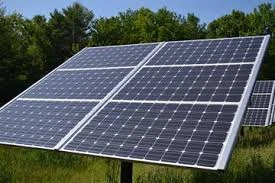Innovations in Solar PV Module Technology for Sustainable Energy Solutions
The Rise of Solar PV Modules Harnessing the Power of the Sun
In recent years, the world has witnessed a significant transformation in energy production, with a growing emphasis on renewable sources. Among these, solar photovoltaic (PV) modules have emerged as a leading technology in solar energy generation. These modules, which convert sunlight directly into electricity, offer a sustainable solution to the global energy crisis and contribute to combating climate change.
What are Solar PV Modules?
Solar PV modules are assemblies of photovoltaic cells made from semiconductor materials, typically silicon. When sunlight strikes these cells, it excites electrons, creating an electric current. This process, known as the photovoltaic effect, is the cornerstone of solar energy technology. A solar PV system typically consists of multiple modules linked together, along with other components like inverters, batteries, and mounting systems, to produce usable electricity.
Benefits of Solar PV Modules
1. Renewable Energy Source Solar energy is abundant and renewable. Unlike fossil fuels, which are finite, the sun provides a consistent and inexhaustible supply of energy. This makes solar PV modules a key player in transitioning to sustainable energy systems.
2. Environmental Impact The use of solar PV modules significantly reduces greenhouse gas emissions. By replacing traditional fossil fuel sources of electricity generation, these modules help mitigate climate change and promote cleaner air. The life cycle emissions of solar panels are remarkably lower compared to coal or natural gas.
3. Energy Independence Solar PV modules enable individuals, businesses, and countries to generate their electricity. This energy independence reduces reliance on imported fuels and enhances energy security. In regions with abundant sunlight, solar power can offer a stable and cost-effective energy solution.
4. Economic Benefits The solar industry has burgeoned, creating millions of jobs worldwide, from manufacturing to installation and maintenance. The decreasing cost of solar PV modules over the last decade has made solar energy one of the most affordable forms of electricity. Government incentives and subsidies further enhance the economic attractiveness of solar installations.
solar pv module

5. Scalability Solar PV systems can be deployed at various scales, from small residential rooftop installations to large utility-scale solar farms. This versatility allows for a wide range of applications and helps meet diverse energy needs in urban and rural settings alike.
Challenges Facing Solar PV Technology
Despite the numerous advantages, the solar PV industry does face challenges. One of the primary concerns is the intermittent nature of solar energy; electricity generation is reliant on sunlight, which is not always available, particularly at night or during cloudy weather. To address this, advancements in energy storage technologies, such as battery systems, are being developed to store excess energy generated during sunny periods for use when sunlight is not available.
Moreover, the production of solar PV modules requires resources, including rare materials, which can present sustainability concerns. Researchers are exploring ways to create more efficient, less resource-intensive modules through innovative materials and recycling techniques.
The Future of Solar PV Modules
The future of solar PV modules looks promising. With ongoing advancements in technology, the efficiency of solar cells continues to improve. Emerging technologies, such as bifacial solar panels and perovskite cells, offer exciting possibilities for enhancing energy capture and reducing costs. Furthermore, the integration of solar PV systems with smart grids and energy management technologies will optimize electricity generation and consumption.
Governments around the world are increasingly recognizing the importance of solar energy in their energy policies. International agreements aimed at reducing carbon emissions provide a boost to the solar industry and encourage investments in renewable technologies.
Conclusion
In summary, solar PV modules represent a vital and growing component of the global energy landscape. With their ability to generate clean, renewable energy, they play a crucial role in building a sustainable future. While challenges remain, the continued innovation in solar technology and supportive policy frameworks will likely lead to broader adoption and integration of solar PV systems in our everyday lives. As we harness the power of the sun, solar PV modules offer a pathway to a cleaner, more sustainable energy future for generations to come.
-
String Solar Inverter: The High-Efficiency Solution for Smart Solar EnergyNewsJul.14,2025
-
Revolutionizing Rooftop Energy with the Power of the Micro Solar InverterNewsJul.14,2025
-
Power Independence with Smart Off Grid Solar Inverter SolutionsNewsJul.14,2025
-
On Grid Solar Inverter: Powering the Future with Smart Grid IntegrationNewsJul.14,2025
-
Monocrystalline Solar Panels: High-Efficiency Power for the Future of Clean EnergyNewsJul.14,2025
-
Bifacial Solar Panel: A Smarter Investment for Next-Generation Energy SystemsNewsJul.14,2025







